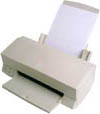Using the Irregular Verbs and
Understand the problem.
Lay and lie are the two most difficult irregular verbs because when we speak, we frequently misuse them. As a result, our ears are used to hearing incorrect forms. When we encounter a wrong form while we are proofreading, it sounds right.
Know the solution.
How do you use lay and lie correctly? First, you must know the definition of each verb.
Definition of
Lay means to put something (or someone) down. Because lay is a transitive verb, a direct object will follow. A direct object receives the action of the verb.
Read this example:
Before returning to the Godzilla marathon on late night TV, Quentin laid his sleeping son Jeremy on the bed and covered him with a quilt.
Quentin laid whom on the bed? Jeremy.
Definition of
Lie, on the other hand, means to rest or recline. Lie is an intransitive verb, so no direct object will follow.
The center of Diane's bed always smells like dog because Reliable, her beagle, lies there every chance he gets.
What is Reliable doing in the middle of the bed? Resting.
Choosing the Correct Form
Once you determine which meaning you need, choose the correct form from the table below:
Infinitive Definition Simple Present Simple Past Past Participle Present Participle to lay to put something down lay(s) laid laid laying to lie to rest or recline lie(s) lay lain lying Important note: The simple present form of lay is the same word as the simple past form of lie. This shared form accounts for much of the confusion with these two verbs.
To choose the correct form, you must understand the uses of the simple present, simple past, and past participle forms.
Use the simple present forms when you mean action which happens consistently or action which is happening right now.
Jack always lays the cordless telephone where no one can find it; we need the rings of an incoming call to betray its location.
Lays = simple present tense of lay, to put something down.
Although the crowd shouts for him to rise, Charles lies in the middle of the boxing ring, felled by a powerful uppercut delivered by Antonio, his opponent.
Lies = simple present tense of lie, to rest or recline.
Use the simple past forms when you mean action completed in the past.
Rachel laid her month-late essay in Professor Cohen's mailbox, hoping that he would still accept the work.
Laid = simple past tense of lay, to put something down.
Gently rocked by ocean waves, Robbie lay on the raft, unconcerned about the distance to shore or fish nibbling the fingers he dangled in the water.
Lay = simple past tense of lie, to rest or recline.
Use the past participle forms whenever you have one or more auxiliary verbs forming the tense.
Rinalda had just laid the last piece of chicken on the grill when a bolt of lightning and clap of thunder signaled the early end of the family picnic.
Had = auxiliary verb; laid = past participle of lay, to put something down.
Jasper should not have laid his new black sweater on the bed, for Josie, his beagle, found it the perfect place to nap.
Should, have = auxiliary verbs; laid = past participle of lay, to put something down.
Squeeze, a seven-foot python, has lain all day in a corner of his aquarium, his inquisitive tongue the only indication of life.
Has = auxiliary verb; lain = past participle of lie, to rest or recline.
Lorenzo would have lain on the sofa all day if the cushions did not stink of dog.
Would, have = auxiliary verbs; lain = past participle of lie, to rest or recline.
Additional Examples
Consider these additional examples for lay:
Every afternoon, Robin lays her keys on the counter, and then Buster, her cat, bats them to the floor.
Robin puts her keys on the counter.
Zaw laid his head in his hands and sobbed. He had a 79.4 average in his English class, and the evil Professor Varner would not bump his grade to a B.
Zaw put his head in his hands.
If Latorrance had not laid his essay on the cafeteria table, ketchup stains would not now decorate four of the pages.
Latorrance put his essay on the table.
Here are more examples for lie:
After a hard day of chewing pig ears and scratching fleas, my dog Floyd lies on the kitchen floor and takes a well-deserved nap.
Floyd rests on the kitchen floor.
Shimmering with all the colors of the spectrum, a thick, greasy film lay on the surface of the squid eyeball stew.
The thick, greasy film rested on the surface of the stew.
The bill for the expensive meal has lain on the table so long that Melissa wonders if her boyfriend Kris has forgotten that it is his turn to pay.
The bill rests on the table.
©1997 - 2025 by Robin
L. Simmons
All Rights Reserved.
